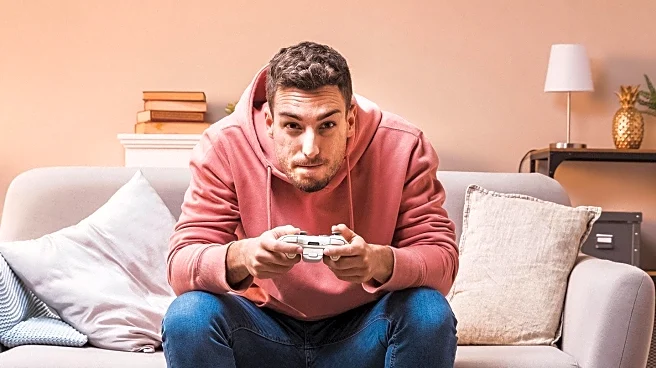What's Happening?
A recent scientific study published in the journal JMIR Serious Games has highlighted the beneficial effects of open-world gaming on emotional well-being and quality of life. The study focused on postgraduate students, a group known for high levels of anxiety and burnout, and found that playing The Legend of Zelda: Breath of the Wild can enhance feelings of purpose and calmness. Additionally, the study explored the interaction between gaming and nostalgia-inducing films, such as Studio Ghibli's My Neighbor Totoro, which further amplified positive outcomes. The research suggests that gaming can be a tool for improving mental health and community-building, countering previous concerns about the negative impacts of gaming.
Why It's Important?
The findings of this study are significant as they contribute to the ongoing debate about the effects of gaming on mental health. With increasing scrutiny from politicians and calls for regulation in the gaming industry, this research provides evidence of the positive aspects of gaming, potentially influencing public policy and perceptions. The study suggests that gaming can be used as a therapeutic tool, offering benefits such as reduced anxiety and improved social interactions. This could lead to broader acceptance and integration of gaming in mental health strategies, benefiting individuals and communities by promoting emotional well-being.
What's Next?
The study's results may prompt further research into the long-term effects of gaming on mental health and its potential applications in therapeutic settings. As the gaming industry faces regulatory challenges, these findings could influence discussions on policy-making, encouraging a balanced view of gaming's impact. Stakeholders, including mental health professionals and policymakers, may explore ways to incorporate gaming into treatment plans, while the industry might advocate for the positive contributions of gaming to society.
Beyond the Headlines
The study opens up discussions on the cultural significance of gaming and its role in modern society. It challenges stereotypes about gamers and gaming culture, highlighting the potential for games to foster positive emotional experiences and community engagement. This could lead to a shift in how gaming is perceived, not just as entertainment but as a valuable tool for personal development and social connection.









